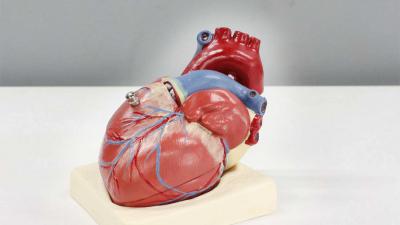Patients who qualify for this examination have often had complaints for a long time that could indicate insufficient blood flow to the heart, while it is nevertheless impossible to demonstrate this. Intervention cardiologist Auke Weevers: “Think of people who regularly experience chest pain and tightness during exertion or at rest. But if we look for a narrowing of the coronary artery, using a CT scan or cardiac catheterization, we don’t see that narrowing at that time.” In many cases, these are middle-aged women with an often healthy lifestyle and no obvious risk factors for cardiovascular disease.
What could be going on in that case is that the poorer blood flow to the heart is not caused by clogged arteries, but by the temporary squeezing (spasm) of the coronary arteries. “The symptoms are the same, but the cause is different,” explains intervention cardiologist Rohit Oemrawsingh. “In both cases, the heart does not receive enough oxygen. In addition to the discomfort, it also gives the patient fear and uncertainty, if nothing is found during examinations, while the complaints continue to occur.”
The new test takes place during a normal catheterisation: the regular examination in which thin tubes with contrast are used to look at the coronary arteries. Weevers: “In addition, we now also administer the substance acetylcholine to the patient, in increasing doses. It provokes blood vessel spasms in people who are sensitive to it. We then look at whether the blood vessel does indeed cramp, whether the heart film changes and whether the patient experiences chest pain.”
Finally, a specially inserted wire is also used to measure whether the resistance in the capillaries of the heart changes under the influence of another administered substance, adenosine. “Narrowing of the capillaries can also be a cause of the complaints,” says Oemrawsingh. “And we can’t see this on a CT scan or with a normal catheterization either. We have been investigating capillaries for some time now. But with the new spasm provocation test added, the Albert Schweitzer hospital can now perform a full coronary function assessment.”
If the entire examination shows that there are no spasms or abnormalities in the capillaries, the patient will be reassured that the heart is healthy, the intervention cardiologists explain. “If spasm and/or narrowing does occur, we can provide treatment for it. There is medication for cramping and lifestyle advice can help. There is also reassurance in this situation, because the patient knows what is going on and can learn to deal with it better.”
The complete coronary function test is only performed when other tests are inconclusive and is requested by the attending cardiologist. During the first two spasm provocation tests that Weevers and Oemrawsingh performed this week, the expert in this field, Dr. Peter Damman from Radboudumc, watched. In the future, the specialists of the Albert Schweitzer hospital will conduct this investigation independently.
– .


